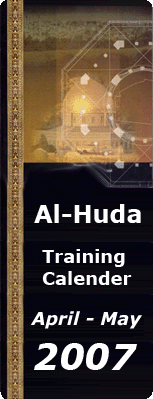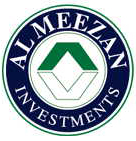| |
DUBAI — Liquidity management is one of the greatest challenges facing the Islamic financial services industry. Of particular concern is how Islamic financial institutions can mitigate liquidity risk and manage their liquidity more easily and effectively, so that they can compete with conventional financial institutions.
Speakers discussed these issues at an Islamic banking conference held in Dubai last week and put forth proposals to create an Islamic money market. Abdullah Haron, assistant secretary general of the Malaysian-based Islamic Financial Services Board (IFSB) said the under-development, or non-existence, of a formal or organised Islamic money market in one form or another — except in Bangladesh, Bahrain, Indonesia, Iran, Malaysia, Saudi Arabia and Sudan — is a significant problem. And where a market exists "its market liquidity is usually constrained by the number and size of Islamic financial institutions," he said.
The mismatching of sources and application of funds in respect to tenures, risks and currencies is of primary concern for Islamic financial institutions, said Haron. Asset-liability mismatches could lead to solvency problems, especially during periods of strained liquidity in the financial system, he said. The absence of, or inaccessibility to, the inter-bank market is another major risk, increasing exposure to liquidity shocks.
All financial institutions must maintain adequate liquidity to ensure they can meet withdrawal demands from customers, cover any unexpected outflows, and comply with the minimum liquid asset ratios required by central banks. However, a shortage of Shariah-compliant money market instruments means that Islamic financial institutions may hold a substantial portion of their assets in cash. Haron said: "Being long on cash to manage liquidity could translate into cost of opportunity for Islamic financial institutions in terms of profitability and affect their competitiveness vis-avis conventional peers."
He continued: "These institutions must also rely on conventional interest-based indices such as Libor because there is limited availability of benchmark rates of return that better reflect the domestic or international monetary conditions relevant to them." And there is a shortage of Shariah-compliant money market instruments that are well suited to active secondary market trading, he added. This is exacerbated by "the tendency of Islamic financial institutions to hold papers until maturity instead of trading in existing Islamic money market," he said. As a result the assets of Islamic financial institutions "will remain illiquid without sufficient market liquidity and/or market depth."
The lack of Shariah-compliant instruments also means that Islamic financial institutions may not have transparent lender-of-last-resort (LLR) privileges with central banks for their day-to-day liquidity management (such as discount windows and Lombard facilities), said Haron, as conventional financial institutions do. Moreover, Islamic financial institutions would not typically borrow from a central bank, for not only would they incur interest charges, but this type of borrowing is prohibited under Shariah rules and principles.
The IFSB formed a taskforce in 2006 to deal with such issues. It puts forth recommendations to encourage and facilitate the liquidity management of Islamic financial institutions and the monetary operations of central banks in a Shariah-compliant way.
Assistant governor of the Central Bank of Malaysia, Muhammed bin Ibrahim, presented a proposal for establishing an integrated Islamic money market. He also estimated that the volume of the Islamic money market in Malaysia would reach 50 per cent of the overall volume by 2010.
Ibrahim stressed that specific research on liquidity management for Islamic institutions must be undertaken. His proposal included creating Shariah-compliant products to manage liquidity and risk management tools, developing the infrastructure to facilitate liquidity management and efficient capital and trade flows, building a uniform regulatory framework that governs liquidity management, and strengthening information sharing and human talent management. He also encouraged Islamic financial centres to share information and to undertake joint research.
He also proposed that Islamic countries establish a "universal musyarakah fund (UMF)". (Musyarakah is a joint venture Islamic concept whereby profit/losses are shared proportionately). Such a fund would benefit Islamic countries in a number of ways, he said. It would allow a re-channelling of pooled funds to other Islamic countries that require Islamic funds for economic development. And it would help to promote the development of an Islamic capital market, not only by encouraging the issuance of Islamic financial instruments but also by encouraging global investors to participate in an Islamic financial market. It would also facilitate greater co-operation among Islamic nations, especially in the sharing of knowledge and expertise.
Ibrahim also proposed that an Islamic Finance Dealer Association (IFDA) be set up. Such an association would bring together individual members and provide a platform for those actively engaged in the wholesale Islamic financial markets, he said. It would be educational, providing examinations for its members, as well as arranging seminars and conferences.
The treasurer of the Saudi-based Islamic Development Bank (IDB), Mohammed Tariq, also put forth an initiative to develop an Islamic money market — one suited to issuers such as large financial institutions or a central bank.
Under this proposal, the issuer would sell a large pool of Shariah-compliant assets, whether equities, real estate, sukuks or debt, to a special purpose vehicle (SPV). The SPV would then issue a number of short-term financial papers, with a variety of maturities, say one week, one month or three months. These asset-backed papers would then be transferable to other investors, issuers, or designated market makers. And market-making institutions will quote two-way prices for the financial papers, which will have a close link with Libor or similar index for secondary money trading. On maturity, the issuer would redeem the units and create new units similar to those maturing, Tariq explained.
He acknowledged, however, that further research on how such a scheme would work is required. For although it would meet the requirement of most investors who have surplus funds, it would be difficult for an institution that "wants to raise funds on a 'clean' basis'", he said.
"The scheme will be more feasible if most institutions hold some of these financial papers as they will be able to liquidate the investment," he added, saying it would also be desirable for issuers to have a diversified portfolio of assets. Holding longer-term assets would also give greater credibility and comfort to investors, he said. How to assign a credit rating to the papers must also be addressed.
|








